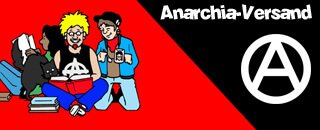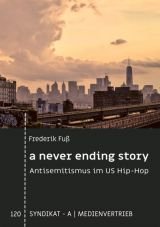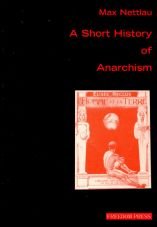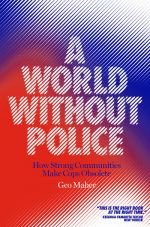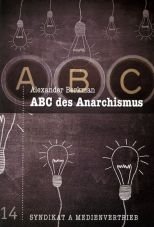Bücher und Broschüren
Meine umfangreiche Auswahl von Büchern und Broschüren zu den verschiedensten Themenbereichen - Gesamtübersicht.
„Was weiß das deutsche Volk von einem Thomas Münzer, der großen Prophetengestalt der ersten deutschen Revolution, der in seiner machtvollen Persönlichkeit die Sache der geknechteten Massen verkörperte […] Wäre Münzer ein Lakai der Fürsten gewesen wie Luther, so würde auch er heute zu den ‚Großen’ der Reformation gehören. Aber er stand zum Volke, zu den breiten Massen der Bauern und der Proletarier in den Städten, deren Sache er treu bis zum Tode verteidigt hatte.“ (Rudolf Rocker 1925)
Autor*innen: Helge Döhring
500 Jahre Reformation - 500 Jahre Martin Luther? So wollen es die staats- und kapitaltreuen Propagandisten von heute. Und sie werden dieses Ereignis mit Pomp und Gloria inszenieren, als habe es keine andere Geschichte gegeben. Luther, der Vernunftmensch, der auch mal derb sein durfte, Luther, der die Welt veränderte und sich für die sozialen Belange der Armen einsetzte - sein eiserner Besen wird peinlich verschwiegen. Luther, der in seinen Predigten und Taten Maß hielt, im Sinne eines heuchlerischen Klassenfriedens aller Menschen - arm und reich. Luther, der Prototyp des modernen Sozialdemokraten. Doch zu allen Zeiten gab es Menschen, die es ehrlich meinten mit sozialen Umwälzungen und dafür ihr Leben gaben: 500 Jahre Reformation - 500 Jahre Thomas Müntzer!
Autor*innen: Helge Döhring
In dieser Autobiographie beschreibt John Olday (1905-1977) die wirkliche Geschichte der ersten Hälfte seines ereignisreichen Lebens. Kriegsarmut, Diebereien, Revolten und Plünderungen. Spartakus, Bandenkampf und Hamburger Aufstand. Schwulenszene, Drogen und Vagabondage. Eine „kleine unorganisierte Gemeinschaft“ im Untergrund gegen den Nationalsozialismus. Exil in London…Was hatte Hilda Monte eigentlich mit Georg Elser zu tun? Olday gewährt Einblick in die revolutionären und anarchistischen, aber auch kriminellen und subkulturellen Zusammenhänge, in die er verwickelt war.
Autor*innen: John Olday
Autor*innen: David Berry
Autor*innen: Frederik Fuß
Yet, for nearly 2000 years, the city has been a breeding ground for radical ideas, home to thinkers, heretics and rebels from John Wycliffe to Karl Marx. It has been the site of sometimes violent clashes that changed the course of history: the Levellers’ doomed struggle for liberty in the aftermath of the Civil War; the silk weavers, match girls and dockers who crusaded for workers’ rights; and the Battle of Cable Street, where East Enders took on Oswald Mosley’s Black Shirts.
Autor*innen: John Rees; Lindsey German
Looking at history from the bottom up, providing an account of working people and peasants, Hazan asks, how did they see their opportunities? What were they fighting for? What was the Terror and could it be justified? And how was the revolution stopped in its tracks? The People’s History of the French Revolution is a vivid retelling of events, bringing them to life with a multitude of voices. Only in this way, by understanding the desires and demands of the lower classes, can the revolutionary bloodshed and the implacable will of a man such as Robespierre be truly understood.
Autor*innen: Eric Hazan
Anarchism is a gathering wilderness that continually defies the confusions and contradictions of capitalism and its current incarnation as neoliberalism. Rooting itself in the tiny forgotten cracks of our fractured order, anarchism heaves open spaces of resistance and rebellion with the energy of a thousand suns. It is the strength that comes when we recognise the beauty of our own lives by seeing ourselves reflected in the lives of others. A dagger in the heart of domination, a clarion call for mutual aid, an unyielding spirit of revolt, anarchism allows us to acknowledge our connection to the Earth, to each other and to the entirety of existence. More than mere ideology, anarchism is a way of knowing and being in a world that situates humanity as but a single flowering within the great mystery of consciousness. Anarchism above all else, as this primer makes clear, is a geography of possibilities.
Autor*innen: Simon Springer
Max Nettlau was the most proficient, and still is the most important, chronicler of anarchism. This single volume (at 400 pages) introduction to the history of anarchist ideas and early movements, summarizing the author's monumental 9-volume history and several biographies, is the most reliable guide. The 18 chapters cover the precursors of anarchism, the history of ideas like individualist anarchism, Proudhonism and revolutionary syndicalism, and the history of the world anarchist movement up to 1930.
Autor*innen: Max Nettlau
Tens of millions of people poured onto the streets for Black Lives Matter, bringing with them a wholly new idea of public safety, common security, and the delivery of justice, communicating that vision in the fiery vernacular of riot, rebellion, and protest. A World without Police transcribes these new ideas - written in slogans and chants, over occupied bridges and hastily assembled barricades - into a compelling, must-read manifesto for police. A World without Police argues that abolition is not a distant dream or an unreachable horizon but an attainable reality. In communities around the world, we are beginning to glimpse a real, lasting justice in which we keep us safe.
Autor*innen: Geo Maher
Autor*innen: Patrick Bolk (Hg.)
Dieses Hauptwerk des bekannten Anarchisten Alexander Berkman erschien erstmals unter dem Titel “The ABC of Communist Anarchism” im Jahre 1928 in Berkmans Exil in Paris. Seither wurde es in viele Sprachen übersetzt und immer wieder aufgelegt. Noch heute gilt es als eine der klassischen Einführungen in den kommunistischen Anarchismus. Auch wenn sich in den fast 90 Jahren seit dem Erscheinen des Textes vieles in der Welt geändert hat, ist es doch auf der anderen Seite immer wieder verblüffend, wie aktuell die Berkmans Kritik an Staat und Kapital auch heute noch daher kommt.
Autor*innen: Alexander Berkman




